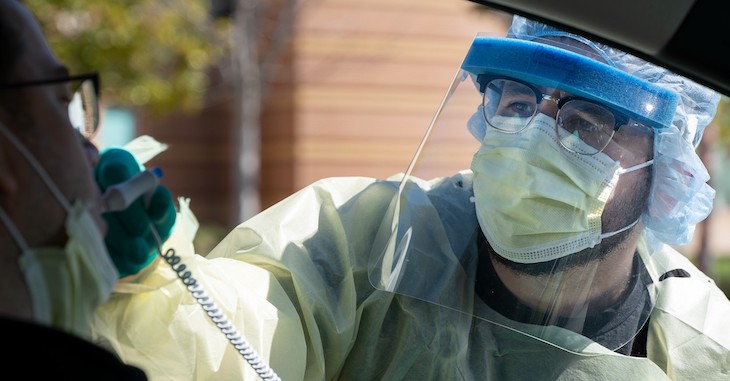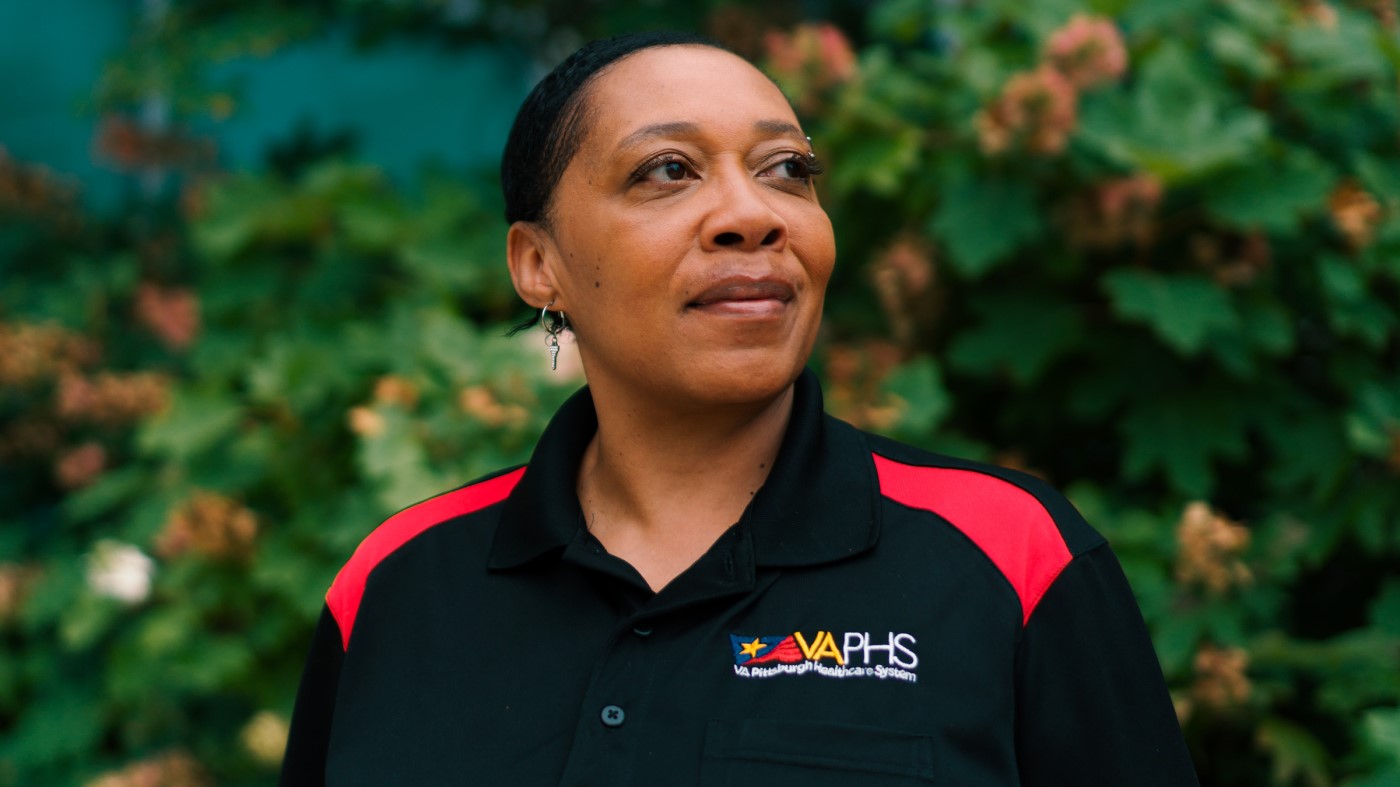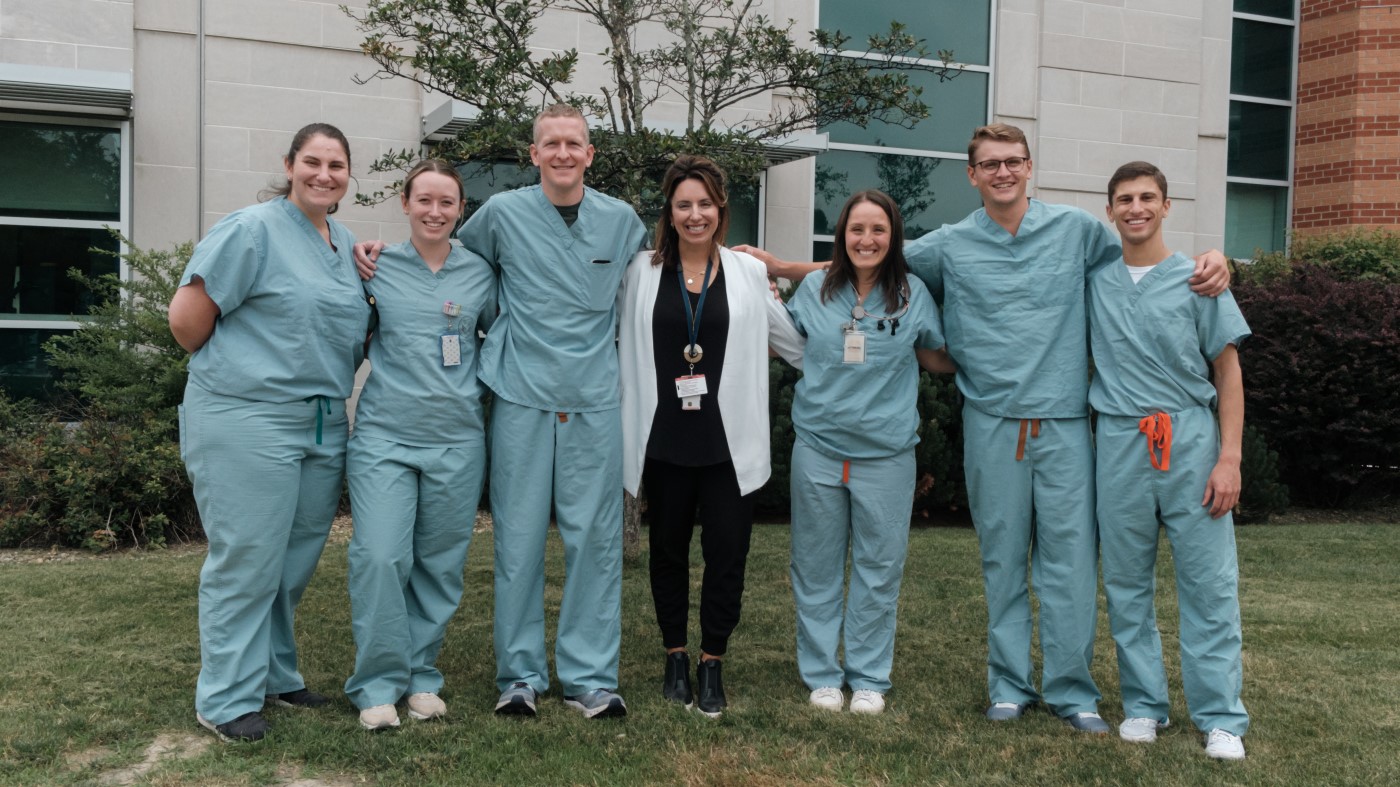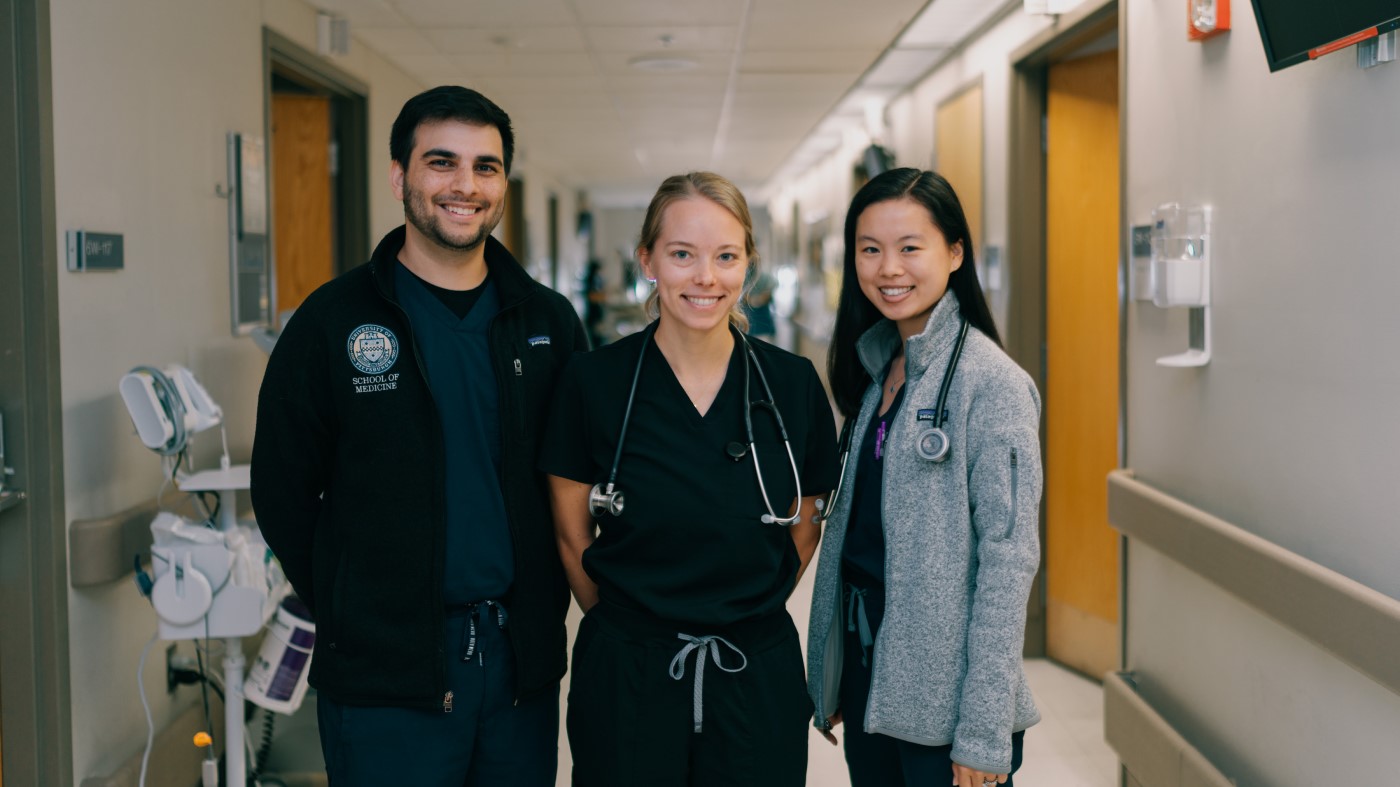Daniel Mendoza spent over seven years in the U.S. Army, both as a combat and flight medic. His military experience has proven invaluable to the VA Palo Alto Health Care System, where he works as an Intermediate Care Technician (ICT) in the emergency department. Recently, Mendoza’s role as an ICT has taken him to the front lines of a different battle — the coronavirus.
As part of the Transitioning Military Personnel initiative, the ICT program allows us to bring former military corpsmen and medics into positions at VA medical centers as an integral part of the medical team. As an ICT, Mendoza has the opportunity to advance the quality of care for Veterans enrolled in VA by applying his military training to the job at hand. But he also has the opportunity to grow his skill set and expand his career by taking advantage of the many education benefits VA offers its employees.
In this installment of our #WorkAtVA blog series, Mendoza describes a typical day on the job during the pandemic and how the ICT program helps Veterans put their skills to work in the civilian world.
Before the COVID-19 pandemic, what were your daily job responsibilities and duties?
Before the pandemic, the other ICTs and I were in charge of ensuring supplies were in stock for specialty carts like wound care or casting. Also, we would help the nurses with EKGs, starting IVs, drawing blood labs, inserting nasogastric tubes and much more.
What does your typical day look like now?
Right now, I’m mostly focused on possible COVID-19 patients and directing them before they come in. That’s what I do most weekdays, but during the weekend I’m still helping nurses with IVs and EKGs for patients who we think might have COVID-19 or have tested positive for COVID-19.
During the week, I arrive at work at 7 a.m. and have a morning huddle with the nursing staff. By 7:30 a.m., I am checking the outdoor medical screening area cart for personal protective equipment (PPE) — gowns, hair nets, plenty of gloves. I’m also checking for documentation, which is the medical paperwork that we’ll upload to the patient’s files. Sometimes we’ll have extra swabs in our cart. There are quite a few things in there.
At 8 a.m., I set up our outdoor screening area with a vitals machine and cart and don my PAPR [powered air purifying respirator] mask, gown and gloves. I have a beard, so I can’t wear the N-95.
At 8:30 a.m., we start receiving patients. I begin by asking them screening questions related to COVID-19: Do you have a worsening cough? Do you have new onset or worsening shortness of breath? Do you have a fever? Those are the typical ones. We also ask about loss of smell and taste, along with a few more in-depth ones. Then, I take vitals. I present the vitals and the answers to the questions to the medical screening area doctor and we decide if the patient should be seen at the respiratory clinic, urgent care or emergency room.
This continues throughout the day until 4:30 p.m. Then, I doff my PPE and clean it. We have to take it off a certain way — there’s a 12-step process. By 5:30 p.m., I am done bringing everything back and I am off for the day.

ICT Daniel Mendoza prepares to take a Veteran’s temperature in a drive through COVID-19 screening. (Photos courtesy of Adan Pulido, VA Palo Alto Health Care System).
What is the most challenging part of your day? How do you overcome this challenge?
I think the most challenging part of my day is when both the doctor on shift and I get a huge influx of patients. We have to rapidly assess them and direct them to appropriate areas of care according to their symptoms and subjective complaints.
What is the most rewarding part of your job?
The most rewarding part of the job is getting to interact with other Veterans and use the skills I learned in the Army as a medic.
What do you find most surprising about working at VA?
What I found most surprising at VA is how quickly patients get seen in the emergency room (ER). As a patient in other ERs, I waited multiple hours to get a room. Here, I almost never see a Veteran wait longer than an hour in the waiting room.
How has VA helped you grow in your career?
VA is helping me become a better care provider for people in general and has helped me grow confident in my skills. Also, I am a nursing student. I’m using the GI bill through VA, and it makes nursing school easy because I get to apply some of the things I learn here and at school interchangeably.
What are a few key benefits of working at VA?
I think the key benefits for me are putting money into a TSP [Thrift Savings Plan] savings account and my retirement. Also, paid time off is great here because they took into consideration my years in the Army.
What would you tell other Veterans or military personnel who are interested in choosing a career at VA?
VA is a great organization that has a noble mission of taking care of those who made the decision to fight for our nation.
Work at VA today
The ability to work in health care after the military and serve fellow Veterans led Mendoza to choose a VA career. See if an ICT position at VA is the right choice for you too.
- LEARN how transitioning military medics and corpsmen can work at VA.
- DISCOVER the benefits of a VA Career.
- ACCESS FAQs to learn how to speed the hiring process.
- EXPLORE career opportunities for transitioning military medics and corpsmen.
Topics in this story
More Stories
If you’re looking for an opportunity to provide care to Veterans outside a traditional clinical setting, Home Based Primary Care (HBPC) is a great option.
A key part of your job search is finding the right fit for you and your skills, and workplace culture can impact that dramatically.
VA offers numerous pathways into mental health careers, including scholarship opportunities for college students. Learn more.






